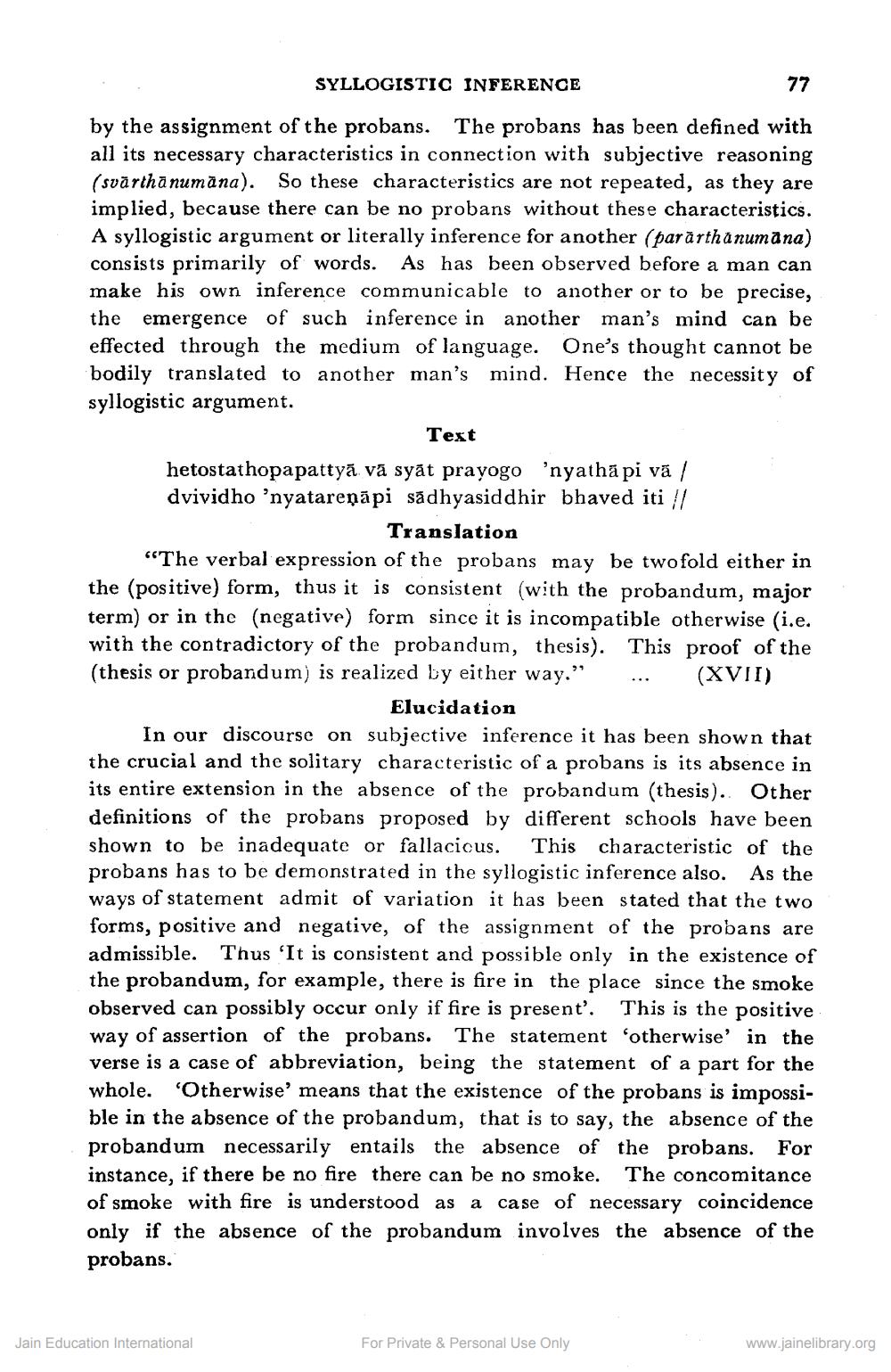________________
SYLLOGISTIC INFERENCE
77
by the assignment of the probans. The probans has been defined with all its necessary characteristics in connection with subjective reasoning (svārthānumāna). So these characteristics are not repeated, as they are implied, because there can be no probans without these characteristics. A syllogistic argument or literally inference for another (par ārthanumāna) consists primarily of words. As has been observed before a man can make his own inference communicable to another or to be precise, the emergence of such inference in another man's mind can be effected through the medium of language. One's thought cannot be bodily translated to another man's mind. Hence the necessity of syllogistic argument.
Text
hetostathopapattyā vā syāt prayogo 'nyathāpi vā / dvividho 'nyatareņāpi sādhyasiddhir bhaved iti //
Translation
"The verbal expression of the probans may be twofold either in the (positive) form, thus it is consistent (with the probandum, major term) or in the (negative) form since it is incompatible otherwise (i.e. with the contradictory of the probandum, thesis). This proof of the (thesis or probandum) is realized by either way." (XVII)
Elucidation
In our discourse on subjective inference it has been shown that the crucial and the solitary characteristic of a probans is its absence in its entire extension in the absence of the probandum (thesis). Other definitions of the probans proposed by different schools have been shown to be inadequate or fallacicus. This characteristic of the probans has to be demonstrated in the syllogistic inference also. As the ways of statement admit of variation it has been stated that the two forms, positive and negative, of the assignment of the probans are admissible. Thus 'It is consistent and possible only in the existence of the probandum, for example, there is fire in the place since the smoke observed can possibly occur only if fire is present'. This is the positive
way
of assertion of the probans. The statement 'otherwise' in the verse is a case of abbreviation, being the statement of a part for the whole. 'Otherwise' means that the existence of the probans is impossible in the absence of the probandum, that is to say, the absence of the probandum necessarily entails the absence of the probans. For instance, if there be no fire there can be no smoke. The concomitance of smoke with fire is understood as a case of necessary coincidence only if the absence of the probandum involves the absence of the probans.
Jain Education International
For Private & Personal Use Only
www.jainelibrary.org




